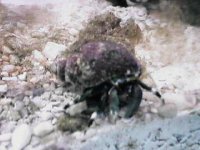A
Anonymous
Guest
Weekly discussion - Reef Janitors - help or hype?
Reef janitors always seem to be recommended, yet there are always posts on RDO describing tanks that have all kinds of organic problems while having a huge population of janitors.
Do clean up crews help? Do they hurt? Which ones? Do they just provide false hope?
What do you think?
About the RDO Weekly Discussion:
This discussion is meant to get at your experience and to share information that is in your head, so don't necessarily treat it as information gathering. State your opinion and, if available, use material, anecdotal or otherwise, that will back up your opinion.
If you have topics that you think would be helpful for the RDO community to discuss, please send me a pm.
Reef janitors always seem to be recommended, yet there are always posts on RDO describing tanks that have all kinds of organic problems while having a huge population of janitors.
Do clean up crews help? Do they hurt? Which ones? Do they just provide false hope?
What do you think?
About the RDO Weekly Discussion:
This discussion is meant to get at your experience and to share information that is in your head, so don't necessarily treat it as information gathering. State your opinion and, if available, use material, anecdotal or otherwise, that will back up your opinion.
If you have topics that you think would be helpful for the RDO community to discuss, please send me a pm.






